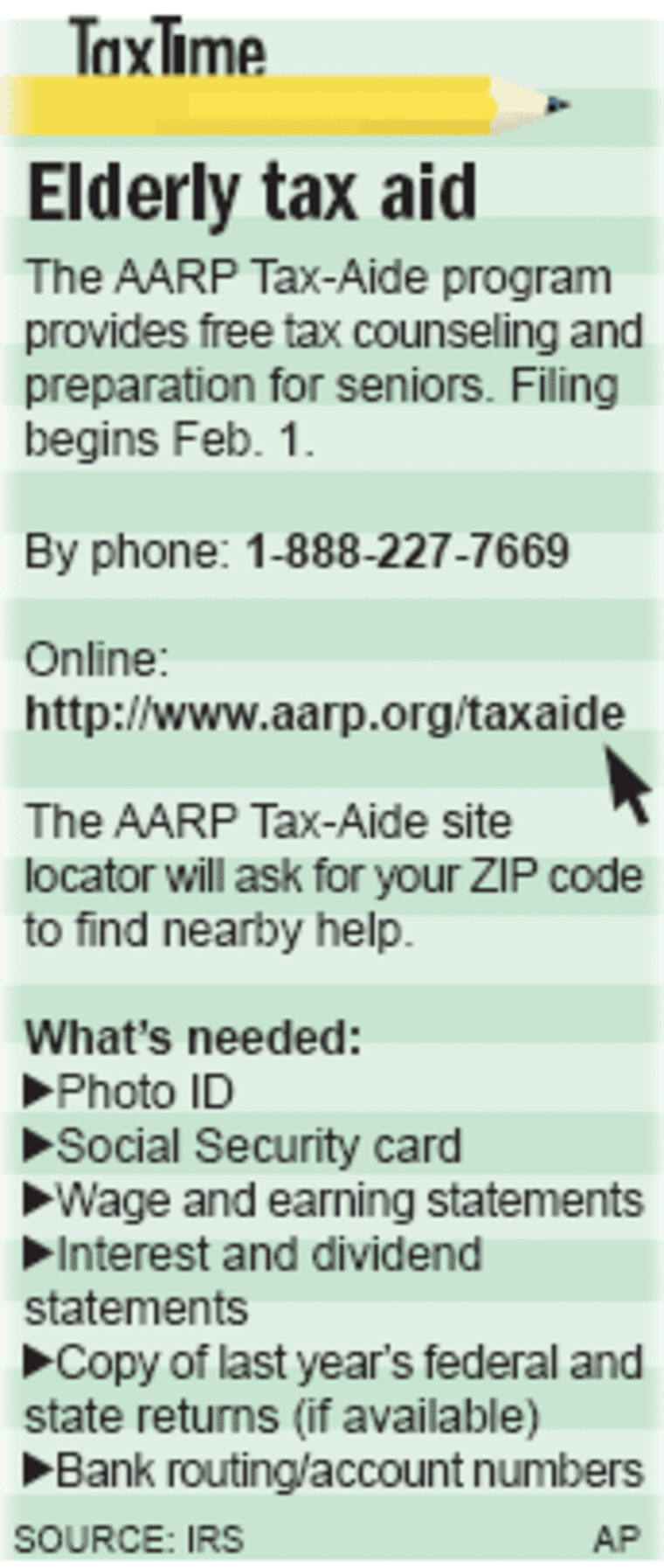As an accounting major, Diane Flook had studied income tax preparation, but the subject truly came alive when she took that knowledge into a senior citizens center and helped elderly people with their tax returns.
“One of the things I ran into was a lot of seniors don’t really know anything about their money,” Flook said. “Their husband always did their taxes but he died, and the woman came in and it was hard to make her understand it.”
Flook is one of more than 32,000 volunteers for AARP’s Tax-Aide program, which helps nearly 2 million elderly people with their taxes at some 7,800 sites during tax season. Sponsored by the Internal Revenue Service, Tax-Aide is the largest free tax counseling and preparation program in the country.
Richard Davis, an accounting professor at Susquehanna University’s Sigmund Weis School of Business, has been coordinator of the Tax-Aide program in Selinsgrove, Pa., for several years. Every tax season, he and his students help 150 or so elderly taxpayers with their federal, state and local tax returns.
“The students have all gone through my tax course and I also give them some material the IRS publishes just for this program that helps them get ready for it,” said Davis, a former IRS official in the agency’s chief counsel office, which handles taxpayers’ audit appeals.
Complicating taxes for many elderly people is income they receive from part-time jobs that supplement retirement benefits or from investments that generate capital gains. And while some elderly people have incomes too low to require filing federal taxes, they may still have to file state or local tax returns.

The IRS provides training materials for Tax-Aide volunteers, mainly about tax issues that pertain to the elderly — like the sale of a home, pension and Social Security income, dividends and bank interest.
Some clients know little about their finances, often because a spouse or relative handled them, Davis said. That’s especially true for widows, he said.
“Things have changed in our country for the better, but we’re still dealing with 80- and 90-year-old people who grew up in an era where, gender-wise, things were very different,” Davis said. “Husbands took care of everything and the wife doesn’t know what her husband did and it’s a very real challenge.”
Flook, a 21-year-old senior from Corning, N.Y., who plans to work for a regional accounting firm when she graduates, was among Davis’ students who helped seniors with taxes last spring and will do so again this year. Much of what she learned wasn’t in any textbook.
“While on campus you’re in a little bubble,” Flook said. “It is nice to go into the community” and “see the people you help because a lot of them would have no idea what to do without us, and they like having the chance to interact with younger people.”
The IRS provides tax preparation software for AARP sites and encourages electronic filing. But “at our site we do it all by pencil and paper,” Davis said.
“Our senior citizens prefer that we sit down with them and do it the way they’ve done it for maybe 50 years with a pencil and 1040 and go through the return line by line,” he said. “I think they’re a little uncomfortable when you pull out the computer and do it electronically.”
Jan Cooper, operations coordinator for AARP’s Tax-Aide, said volunteers will do a paper return for anyone who refuses electronic preparation. Many Tax-Aide volunteers are themselves close in age to those they are helping and “understand people’s reluctance with the computer,” Cooper said.
Regardless of how the return is prepared, all taxpayers get a printed copy for their records.
For 2005, Tax-Aide helped prepare about 1.1 million federal returns. Well over half were filed electronically, Cooper said. There is no charge for tax prep or e-filing.
Most clients are low- to middle-income taxpayers over 60, and Tax-Aide sites tend to be in easy-to-access places like senior centers, libraries, banks and grocery stores. Volunteers will also visit retirement and nursing centers and sometimes elderly taxpayers who are homebound, Cooper said.
The 2006 filing program begins Feb. 1. People needing help should bring photo identification, Social Security card, wage and earning statements, interest and dividend statements, a copy of last year’s federal and state returns if available, and bank routing numbers and account numbers for direct deposit of refunds.
To find a nearby Tax-Aide site call AARP at 1-888-227-7669 or visit the IRS or AARP Web sites at http://www.irs.gov and http://www.aarp.org/taxaide.